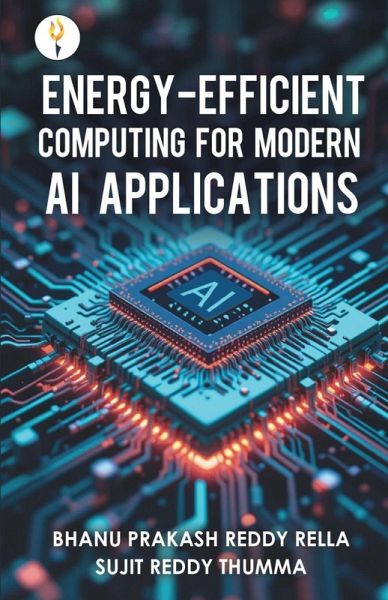
Energy-efficient Computing for Modern AI Applications
Versandkostenfrei!
Versandfertig in über 4 Wochen
14,99 €
inkl. MwSt.

PAYBACK Punkte
7 °P sammeln!
Energy-efficient Computing for Modern AI Applications is written by Bhanu Prakash Reddy Rella and Sujit Reddy Thumma. The quest for energy-efficient artificial intelligence is more than a technical optimization-it is a foundation of the larger effort to build a sustainable digital future. As AI continues to infuse every corner of our lives, from medicine and transportation to communication and climate monitoring, its energy footprint has emerged as a critical global issue. Yet this challenge is also an extraordinary opportunity. By rethinking how we design, deploy, and scale AI systems, we can...
Energy-efficient Computing for Modern AI Applications is written by Bhanu Prakash Reddy Rella and Sujit Reddy Thumma. The quest for energy-efficient artificial intelligence is more than a technical optimization-it is a foundation of the larger effort to build a sustainable digital future. As AI continues to infuse every corner of our lives, from medicine and transportation to communication and climate monitoring, its energy footprint has emerged as a critical global issue. Yet this challenge is also an extraordinary opportunity. By rethinking how we design, deploy, and scale AI systems, we can align technological advancement with the imperatives of sustainability. In this chapter, we have covered a broad set of trends and avenues of research ranging from neuromorphic architectures and quantum computing to energy-aware neural architecture search and low-power robotics. Combined, they show that energy-efficient AI is not an individual innovation but a product of interlinked innovations in software algorithms, hardware design, system architecture, and operation strategy. This advance relies on something greater than engineering skill-it requires an interdisciplinary collaboration involving policymakers, ethicists, environmental scientists, and technologists. Successful solutions will need to take into account not just performance criteria and power usage, but social equity, data privacy, carbon footprint, and regulatory conformity. The future of green AI, therefore, will be constructed not just in research laboratories but in legislative chambers, classrooms, and public discourse. By investing in energy-conscious AI today, we set the stage for a tomorrow where intelligence and sustainability go hand in hand, enabling humanity to innovate without sacrificing the health of our planet.












